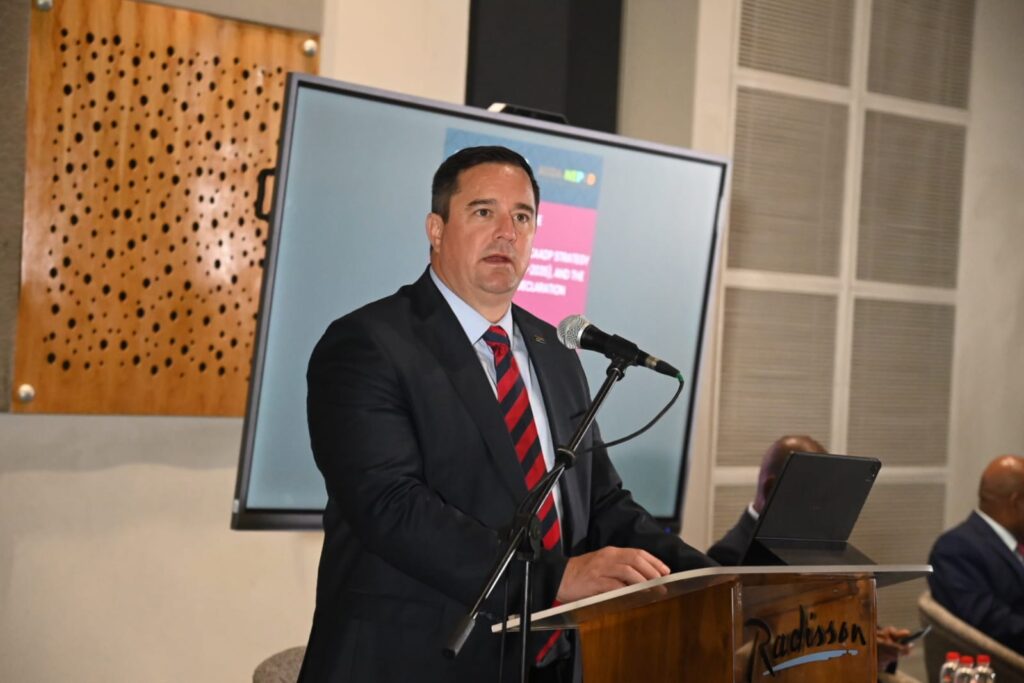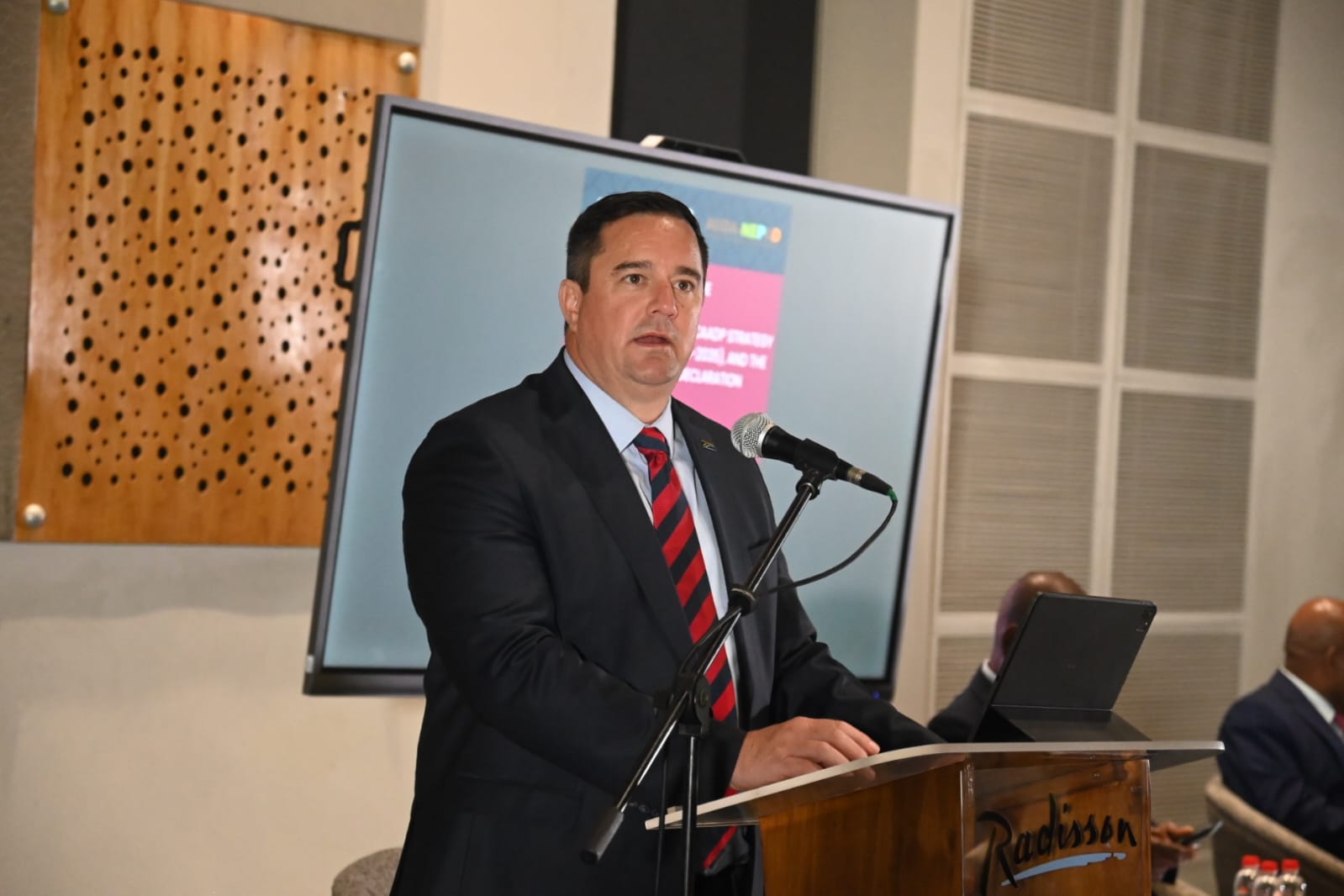
By Baboloki Semele- 05 May 2025: Johannesburg, South Africa: Speaking at the high-level launch of the Comprehensive Africa Agriculture Development Programme (CAADP) Strategy and Action Plan (2026–2035) and the Kampala Declaration, South Africa’s Agriculture Minister John Steenhuisen reaffirmed the country’s strong political will and commitment to drive Africa’s agricultural transformation agenda. Welcoming delegates to Johannesburg, Minister Steenhuisen emphasized South Africa’s deep involvement in the CAADP process, having participated in the Kampala meetings that shaped both the strategy and declaration.
“We are here not only to celebrate this milestone but to commit, again, to advancing agricultural transformation that is inclusive, technologically driven, and people-centred,” he said.
The Minister also congratulated H.E. Mr. Moses Vilakati on his recent appointment as Commissioner for Agriculture, Rural Development, the Blue Economy, and Sustainable Environment at the African Union Commission. South Africa pledged its full cooperation in supporting his mandate to uplift agriculture across the continent.
A Time for Bold Action Amid Complex Realities
Minister Steenhuisen acknowledged the urgency behind the new CAADP plan, especially amid a backdrop of sluggish economic growth, climate change, supply chain disruptions, and high food inflation. These challenges, he said, underscore the need for Africa to move from rhetoric to implementation, with investment, innovation, and coordinated leadership as key drivers.
“Excessive reliance on global markets makes African nations vulnerable. Our strategy must be about building food systems that are resilient, regionally integrated, and technologically enabled,” he noted.
He stressed that seed systems, market linkages, evidence-based policy, and resource mobilization are critical to boosting smallholder productivity and nutrition outcomes especially as over 30% of African children suffer from stunting, and malnutrition remains a major cause of mortality.
Innovation, Data, and Policy Coherence
A significant portion of the Minister’s speech focused on data driven agricultural transformation. He called for renewed efforts to close data gaps in agricultural performance, nutrition metrics, and food systems intelligence, which are essential for effective investment and policy-making.
“We must work with AUDA-NEPAD, development partners, and data scientists to bridge information gaps and make agriculture more attractive to investors—especially for youth and women,” he added.
Technology, he said, must be contextualised and adapted to local conditions, addressing both market failures and resource limitations. This will require targeted public investments, stronger innovation systems, and smarter regulatory environments.
Delivering on the Kampala Agenda
Reflecting on the outcomes of the Kampala Summit, the Minister urged member states to re-evaluate agricultural and nutrition policies in the face of urbanisation, population growth, and shifting socio-political dynamics. He called for multisectoral approaches that include education, health, environment, and finance ministries in shaping a resilient agrifood system.
He also championed inclusive development, ensuring that youth and women are not just beneficiaries but co-creators of agricultural value chains.
“To realise the vision of CAADP 2026–2035, we must assess our progress with honesty and anchor our future in reality,” he said. “Only then can we create practical, inclusive, and investment-ready systems that deliver results.”
Minister Steenhuisen reaffirmed South Africa’s commitment to the six Kampala Commitments and Agenda 2063. He assured that South Africa would continue to provide political support, technical collaboration, and regional leadership to ensure the success of the CAADP agenda over the next decade.
“Our agricultural future must be rooted in shared responsibility, data-informed decision-making, and transformative leadership,” he declared. “Let us not miss this opportunity to secure Africa’s food future.”
